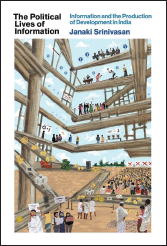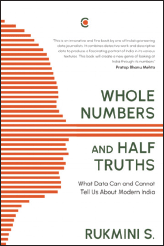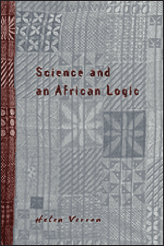What Are You Reading? Srravya Chandhiramowuli
Issue: XXX.3 May + June 2023Page: 12
Digital Citation
Authors:
Srravya Chandhiramowuli
Undoing is an ambitious project, perhaps one that is always evolving, with myriad possibilities and no definitive end. In this piece, I try to find little entry points into this project by turning to a few books, both old and new, that have stayed with me recently and through which I find inspiration or nuance for the agenda of undoing.

The preoccupation with data's "power" to transform contemporary ways of knowing and being in many ways mirrors the hyped discourse of "information is power" from the early 2000s [1]. Janaki Srinivasan's The Political Lives of Information: Information and the Production of Development in India (2022) provides an opportunity to reflect on and learn from that moment to challenge and undo notions of data as inherently transformative. Srinivasan focuses on the central role accorded to information in effecting socioeconomic transformation, asking how issues of development came to be framed as informational problems and what work such a framing does. She argues that the ambiguity of the term information and its "blandness" allowed its adoption across the political spectrum as a tool for development, and in the process, for depoliticizing development itself. Tracing projects that championed access to information with varied levels of success, Srinivasan shows the role of specific social structures, ideologies, individual agency, collective action, and material forms in defining what counts as information, and what doesn't, as well as their role in producing, accessing, and leveraging information.
Srinivasan shows the role of specific social structures, ideologies, individual agency, collective action, and material forms in defining what counts as information.
Fascinatingly enough, just as much as there is hype surrounding data's transformative potential, it is also caught in a culture of distrust fueled by misinformation and political polarization. Data journalist Rukmini S. addresses this in her book Whole Numbers and Half Truths: What Data Can and Cannot Tell Us About Modern India (2021). Her experiences from more than a decade of wading through data to tell stories about everyday events in India offer rich insights into spirited debates on the methods of calculation, the invisible labors of enumerators, and contested survey instruments. She shows that India's statistical architecture is more robust than it is belied by fears of fudging and fraud. She argues that sweeping dismissals and discrediting of data only further its decay, distracting from demands for accountability and dissuading efforts to strengthen data credibility. Rooted in a practitioner's commitment to her craft, the book helps me anchor the project of undoing in critical scrutiny.


Another book that I have read in the past year and returned to quite a few times since is Helen Verran's Science and an African Logic (2001). Verran takes us through her struggles in reconciling the disconcertment she felt about the ways in which Yoruba-speaking children in Nigeria learned to do numbers (and science). She resists producing a relativist account of logic that recognizes the Yoruba speakers' ways of engaging with numbers as both valid and different but still casts it within the frames and structures of Eurocentric ways of doing numbers. Instead, Verran aims to illustrate numbers (and ways of knowing) as not only multiple but also connected and ongoing. Here the undoing is ontological; this thinking has informed discussions in HCI on postcolonial computing [2] and tensions in difference-making [3]. In my research examining data labeling for AI, I draw on Verran's engagement with the ontological implications, or politics, of certainty to consider the logics of counting that order-labeling work and ask what is lost in ordering these logics and what alternatives there might be. More importantly, the book inspires me to stay with the disconcertments I encounter in my own work and confront my role in the stories that I tell about the worlds I study.
1. World Bank. World Development Report 1998/1999: Knowledge for Development. World Bank, Washington, DC, 1998.
2. Irani, L., Vertesi, J., Dourish, P., Philip, K., and Grinter, R.E. Postcolonial computing: A lens on design and development. Proc. of the SIGCHI Conference on Human Factors in Computing Systems. ACM, New York, 2010, 1311–1320.
3. Taylor, A.S. Out there. Proc. of the SIGCHI Conference on Human Factors in Computing Systems. ACM, New York, 2011, 685–694.
Srravya Chandhiramowuli is a doctoral researcher at the Centre for Human-Computer Interaction Design (HCID) at City, University of London. Her Ph.D. examines data annotation work practices, paying particular attention to systemic challenges and frictions, to envision and inform just, equitable futures of AI. [email protected]
Copyright held by author
The Digital Library is published by the Association for Computing Machinery. Copyright © 2023 ACM, Inc.


